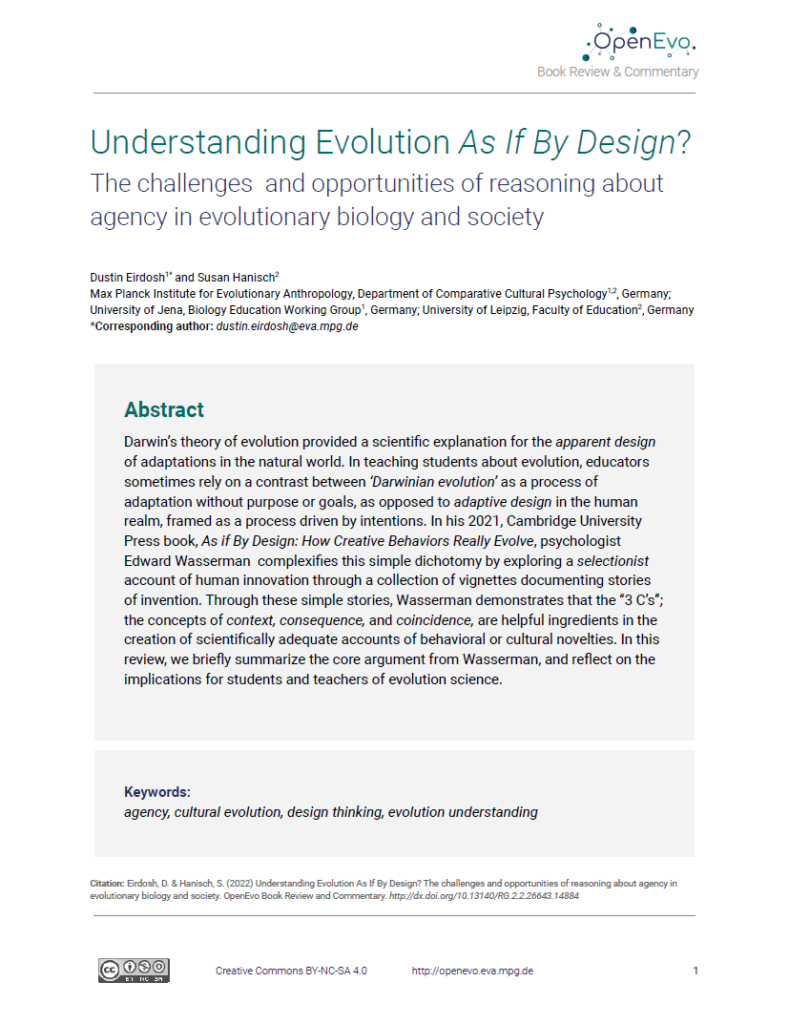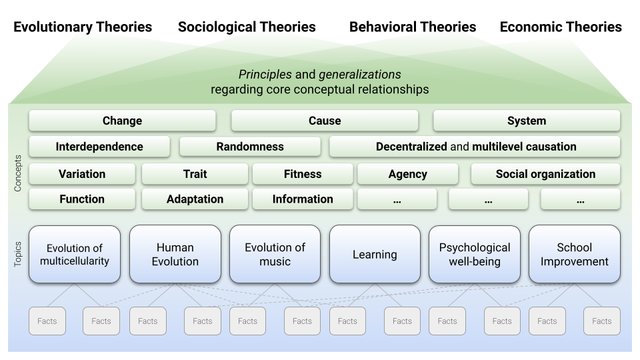Konzeptuelles Denken
Menschliches Verhalten & nachhaltige Entwicklung
Ein Modulkonzept und eine Sammlung von im Modul betrachteten Unterrichtsmaterialien
Menschliches Verhalten & nachhaltige Entwicklung Weiterlesen »
Beliefs About Well-Being Scale
In this questionnaire, people are asked about their beliefs about well-being by indicating the degree to which they believe that certain aspects are a necessary and required aspect of the experience of high well-being and living the good life. It is based on a study that showed that people’s beliefs about wellbeing can affect their actual wellbeing.
Beliefs About Well-Being Scale Weiterlesen »
Eirdosh, D. & Hanisch, S. (2022, preprint) Understanding Evolution As If By Design? The challenges and opportunities of reasoning about agency in evolutionary biology and society. OpenEvo Book Review and Commentary. http://dx.doi.org/10.13140/RG.2.2.26643.14884/2
This review and commentary on psychologist Edward Wasserman’s As if By Design provides a brief overview of the core argument from Wasserman, and discusses the implications for evolution science educators and students.
Hanisch, S., Eirdosh, D. (2023). Teaching for the Interdisciplinary Understanding of Evolutionary Concepts. In: du Crest, A., Valković, M., Ariew, A., Desmond, H., Huneman, P., Reydon, T.A.C. (eds) Evolutionary Thinking Across Disciplines. Synthese Library, vol 478. Springer, Cham. https://doi.org/10.1007/978-3-031-33358-3_8
Evolutionary concepts are used, with varying and arguable degrees of scientific utility, across a wide range of disciplines. This contribution explores how understanding the structures of knowledge, or the organization of facts and generalizations in science, cognition, and education, may help illuminate the educational potential and evidence-informed pedagogical practices appropriate for teaching about the interdisciplinary application of evolutionary concepts.
Curriculum Overload – Improvement
Curriculum Overload is a complex phenomena in which schools face challenges in creating adaptive learning environments for students.
Curriculum Overload – Improvement Weiterlesen »





